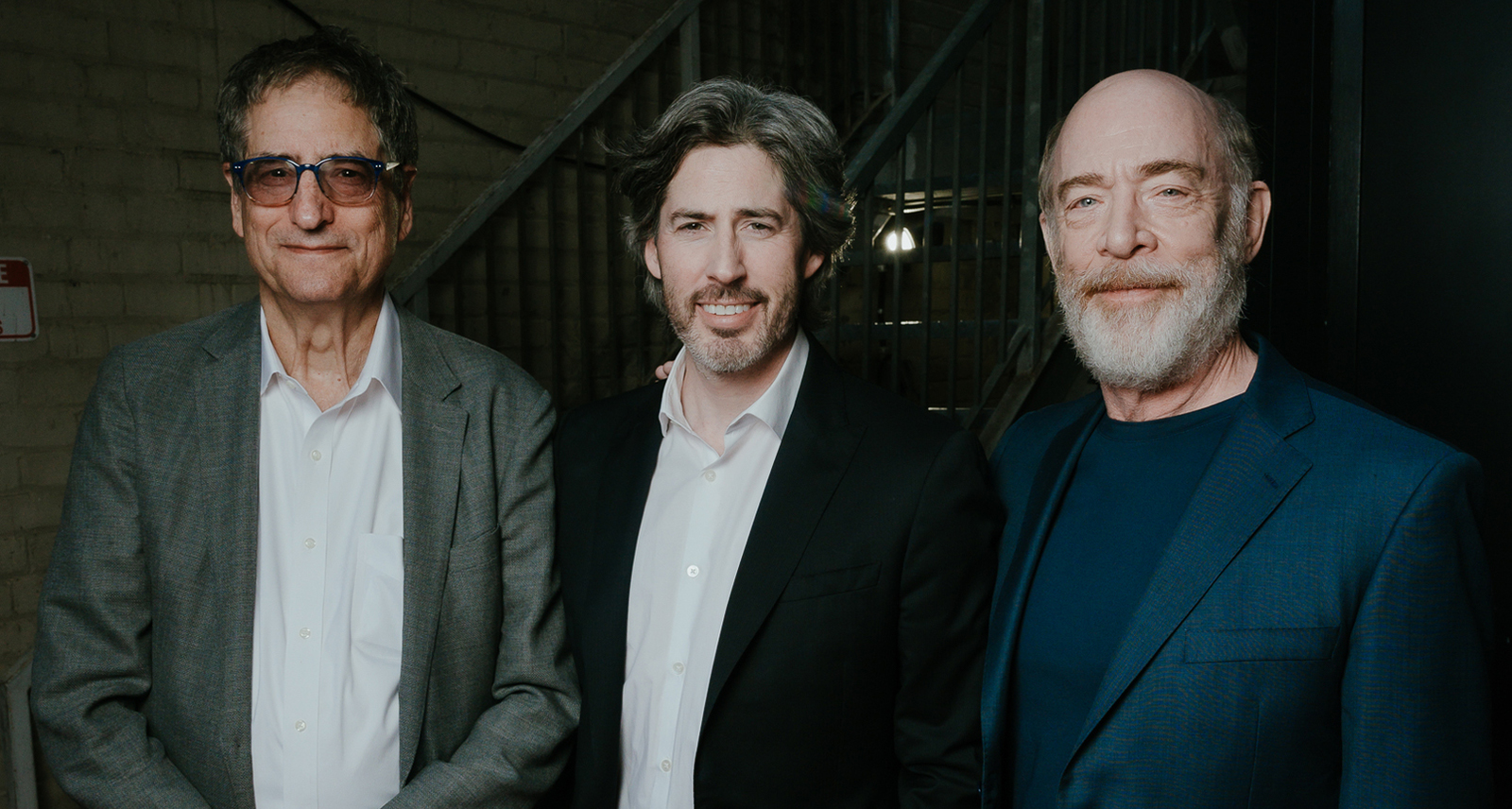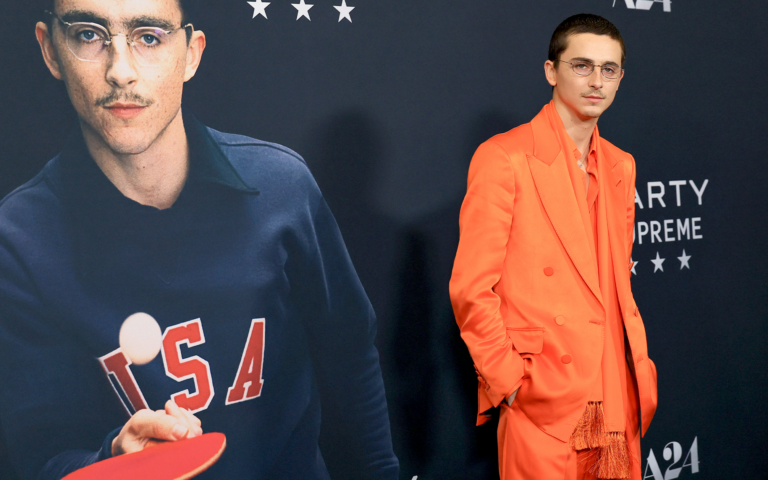When Oscar-nominated filmmaker Jason Reitman set out to make a film about the iconic comedy institution that is Saturday Night Live, he knew he was taking on a daunting challenge.
His goal was to “evoke a feeling,” and to transport audiences back to the frenetic energy and high-stakes excitement of those final moments before the very first live broadcast in 1975. Reitman is no stranger to that feeling — in 2008, he spent a week at SNL as a guest writer and director.
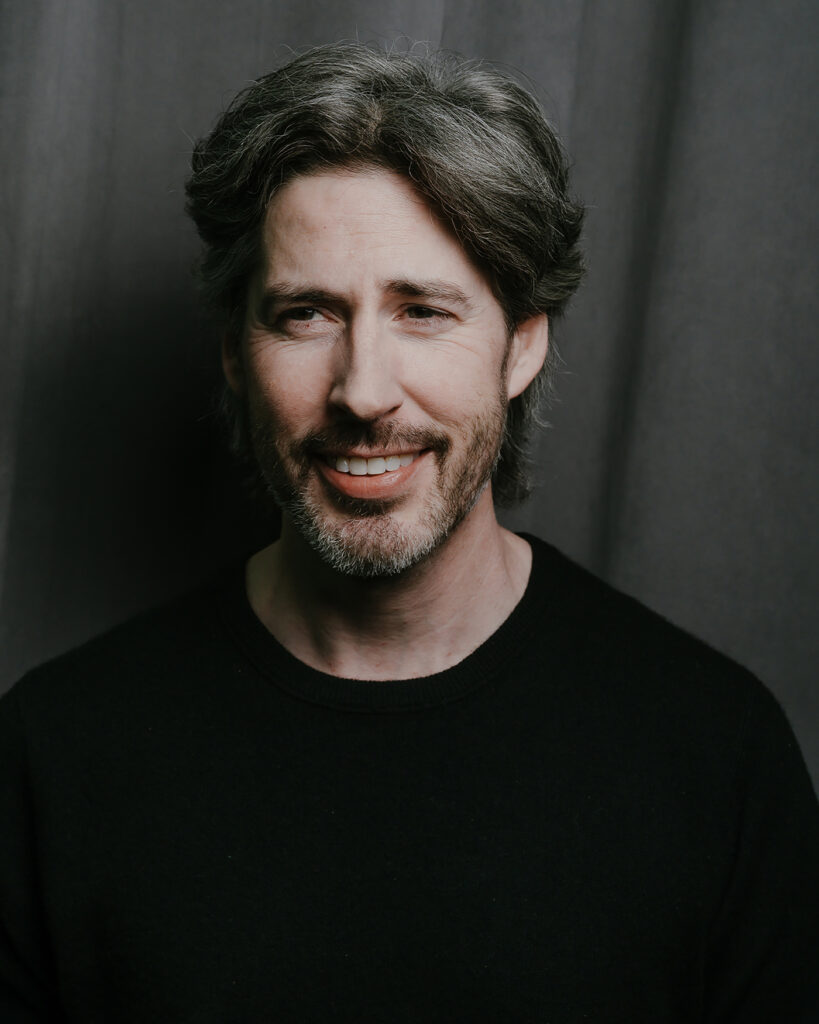
Reitman, 46, whose own childhood was steeped in the lore of SNL, was aware of the pressure to get it right. “Saturday Night Live was my Yankees,” he tells me in an interview hours after his TIFF premiere. “So the dream of being on the eighth floor, being a writer there, that was a real thing. I dreamt about it the way that kids dream about playing in the NHL. So to make a movie about it, I really wanted to get it right.” And he certainly does. Critics are loving this, and it has already garnered award season buzz.
The Montreal-born filmmaker, who co-wrote and directed the film, captures the electric energy and behind-the-scenes chaos that’s palpable in the hours that ensued inside the famed Studio 8H at 30 Rock, as the minutes ticked down leading up to the first immortal words, “Live From New York, it’s Saturday Night!”
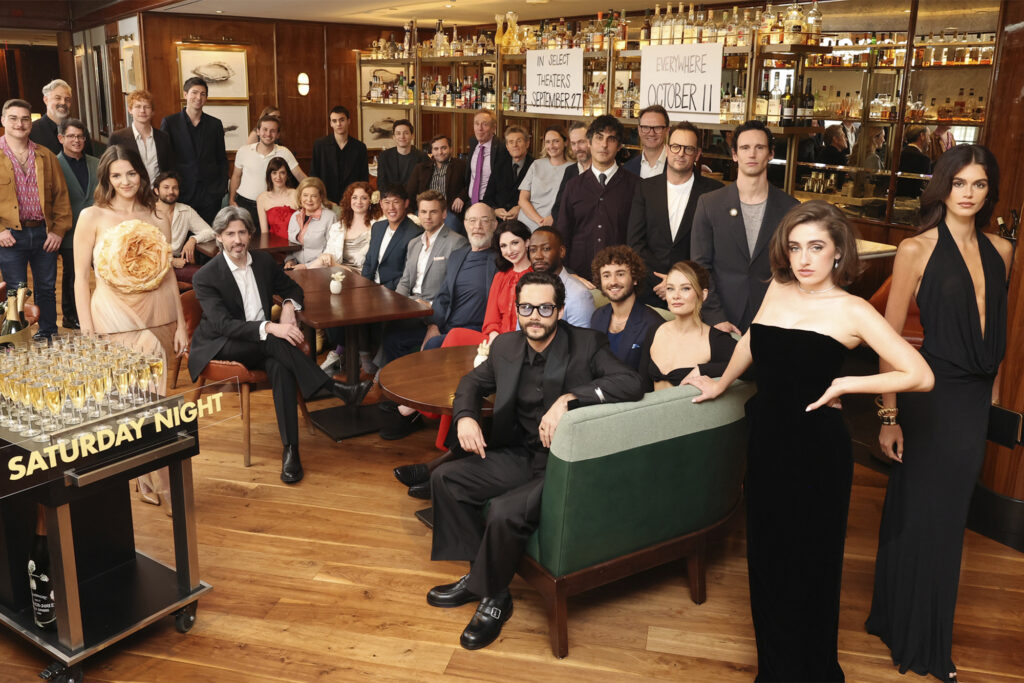
This is the story of that fateful night, on October 11, 1975 at 10:00 pm, when a nervous 29-year-old producer Lorne Michaels (Gabriel LaBelle) leads a young eccentric cast and crew, comprised of Chevy Chase (Cory Michael Smith), John Belushi (Matt Wood), Dan Aykroyd (Dylan O’Brien), Gilda Radner (Ella Hunt), Jane Curtain (Kim Matula), Laraine Newman (Emily Fairn), and Garrett Morris (Lamorne Morris), who go on to make history.
Reitman tells me he’s long chased the pursuit of “organized chaos,” or the ability to capture the spontaneous, lived-in feel of real life on screen — a hallmark of his work as seen in Academy Award-nominated films Juno and Up in the Air. “This is the closest we’ve ever gotten to it,” he said.
“As a filmmaker, people too often think that the point is to tell a story. As a director, I think what you want to do is evoke a feeling.”
Jason Reitman
It’s a testament to Reitman’s singular vision, and his love for SNL, that he has been able to create an experience both thrilling and deeply personal.
We spoke with Reitman about the filmmaking process, the challenges of working with over 80 cast members, and his own fear when tackling an iconic moment in Saturday Night, which is in theatres this Friday.
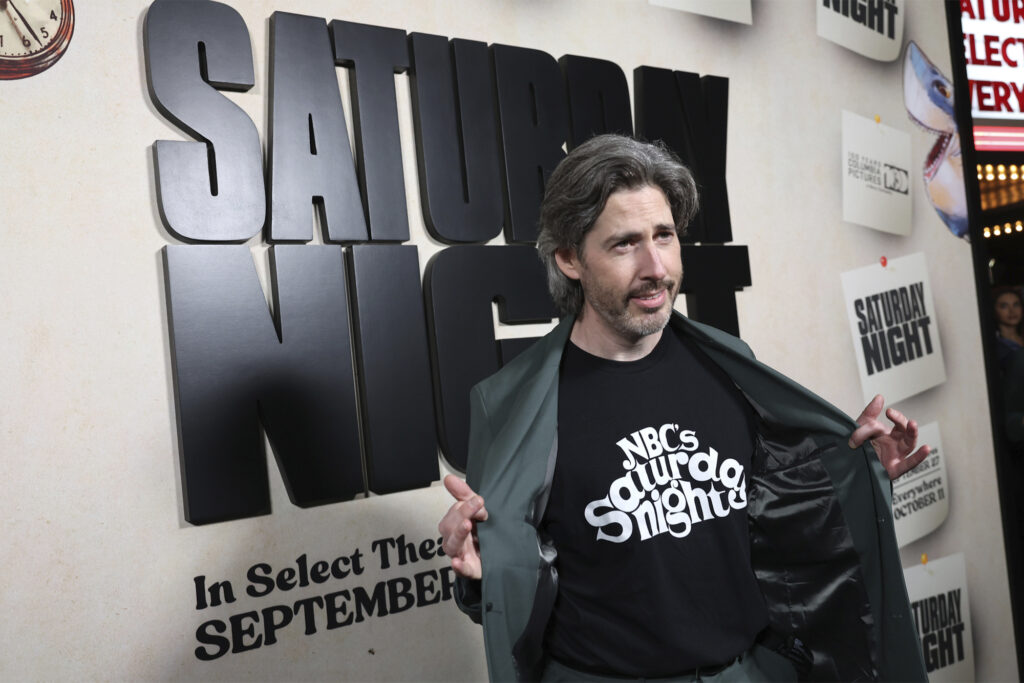
When you were writing this, you likely went through drafts over the years. What was something that never changed and was a constant for you?
Oh, it’s so funny — like, I understand what you’re saying, but I’m not sure if we ever had a rule like that. This is an idea that came out of my writing partner, Gil, and I interviewing everyone we could find that was in the building that night. As a result, it came together differently than anything I’ve ever written, because we’re weaving together all these memories from all these people, from the weeks before and the weeks after. I think, honestly, the thing that was most important to us was, how do we make sure it always feels real?
What was your biggest fear when telling the story of the birth of the single most influential comedy program of all-time?
Hah! That somehow, we won’t capture the energy in the room. That somehow, you won’t feel what I felt when I stood on the floor in 8H. As a filmmaker, people too often think that the point is to tell a story. As a director, I think what you want to do is evoke a feeling. How do you feel at the end of the movie, right before you walk back out into the real world? And so what I’m thinking about constantly is, ‘All right, how do we build this feeling over time, so that it apexes right before they go live?’
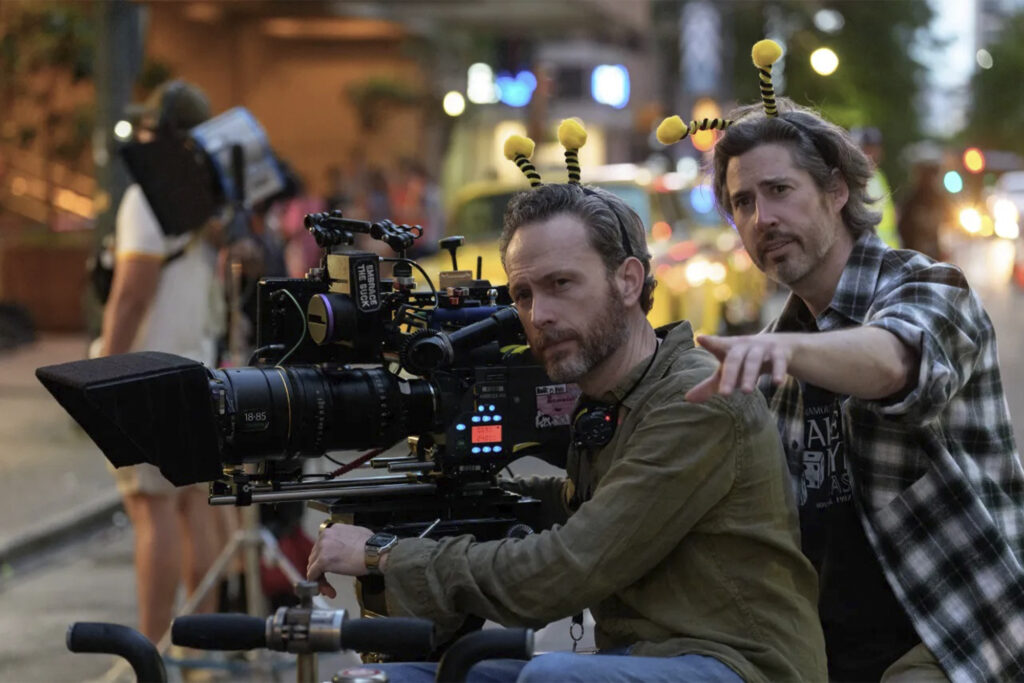
So what was the key to cracking that?
The key is actors’ chemistry. One, we have to build a hyper real jungle gym for them to play in, and we did that by recreating 8H. We rebuilt the entire eighth and ninth floor, and had just enough choreography — like a dance movie — for the world around them, so that they feel like they’re in a real place. They bounce off each other like molecules; they can just keep bouncing and warming up until you’re at a boil.
I read that you created the live feeling of having actors all on set at the same time — no trailers — so that everyone was together for most of the shoot.
I think that the set had a very different energy, because all the background actors were cast in person and taught how to do their job. So, these people who were doing hair and makeup and camera and sound — the background actors — I selected them each individually. Then, we put them through a boot camp. And so if you walked onto that set, it was like walking into the 1970s. There’s also no lights, no cables, everything was built into the set. So, if you’re an actor moving through that world, you can’t help but feel like you’re in the real place.
“It should scare you to write what you want to write. It should scare you to direct what you want to direct.”
Jason Reitman
One of the actors was telling me about the incredible attention to detail needed to recreate the ‘70s feeling, down to the tiniest details.
It’s the phone numbers written on the wall around the payphone. It’s everything at the fake craft table. Everything had age and character. It’s interesting, because you had a group of kids coming into 30 Rockefeller [Plaza], but that stage had been around for decades, in a place where they had done all these kinds of variety shows going back to the Toscanini stage. As a result, all the people who were working there at the time had been there for decades, so it had to feel lived in. It had to feel like there were places where guys have been playing cards for decades.
The legacy of actors and comedians who have come out of Saturday Night Live is legendary, even the legacy of Canadian comedians. I didn’t realize the Canadian roots of SNL — do you think it has lent a Canadian-ness to the DNA of the show?
It’s funny because the comedians on that show were pretty much either from Toronto or Chicago, and obviously my family has roots in the Toronto comedy community. So, I grew up alone, around a lot of those people. I think there’s something about not being from New York City, about being an outsider — that kind of sense of humour.
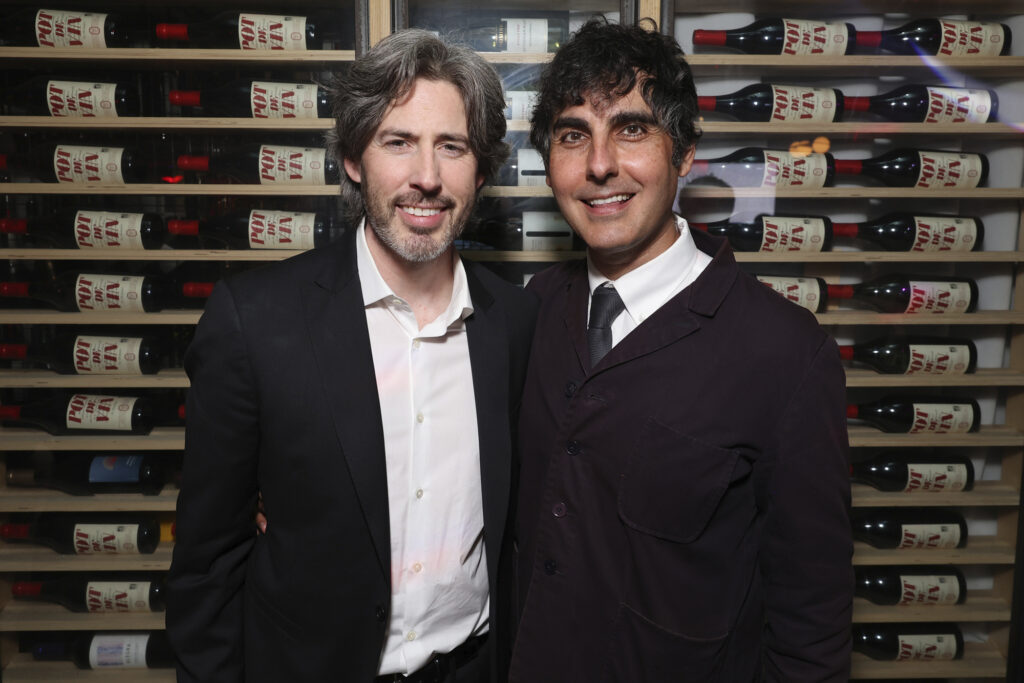
Lorne Michaels says in the film that art is built on sacrifice and tears. Can you recall when this statement never felt more true to you and your craft?
I think, as a writer, I’m constantly recalling the most humiliating moments of my life, because I think they play out the most interestingly on screen. If you don’t feel like you’re sacrificing some of your own humiliation in your storytelling, then I don’t think you’re going far enough. It should scare you to write what you want to write. It should scare you to direct what you want to direct. So it felt like the right joke for that scene.
Do you feel that making this was a scary one for you?
Oh, absolutely terrifying, because I love it. The last time I wrote a director about something I loved this much was Up in the Air, because I love flying and collecting miles. That whole world is very dear to me, but Saturday Night Live is core to my childhood. Saturday Night Live was my Yankees. I didn’t follow sports as a kid. I followed Saturday Night Live. So the dream of being on the eighth floor, being a writer there, that was a real thing. I dreamt about it the way that kids dream about playing in the NHL. And so to make a movie about it, I really wanted to get it right.
“It requires a lot of trust, and I’m really appreciative of that trust to just jump in the ocean and see what happens.”
Jason Reitman
There’s a moment in the movie when Gilda and John reflect about 20 years from now, looking back at that moment, moments before going live on SNL and making history. When you look back now, what was that nostalgic moment for you?
Clearly, the reason why that scene is taking place is because Gilda and John wouldn’t be alive 20 years after that. So, the reason we wrote that scene is the concept of thinking about nostalgia in real time. It’s how fast it happens, and it is so easy to think nostalgically about a moment that you’re having right there. I feel like that’s happening all the time with me. I think that happens all the time with my daughter. I feel like I’m always looking at my daughter now, and looking at her, like, from 20 years from now. I know it’s just a very true feeling for me.
Was there a scene that was kind of impossible to shoot at the time, and now when you look back, you’re like, ‘I can’t believe we pulled that off?’
Oh, it’s the five-minute oner. It’s just continuous action where it feels like making a dance movie choreography. We will work out a sequence of the course of an entire day, and you do the first take, and it’s a mess and there’s no party that believes it’s ever going to make sense. And then, somewhere around lunch, you do the 20th take, and all of a sudden, it’s perfect and it’s glorious.
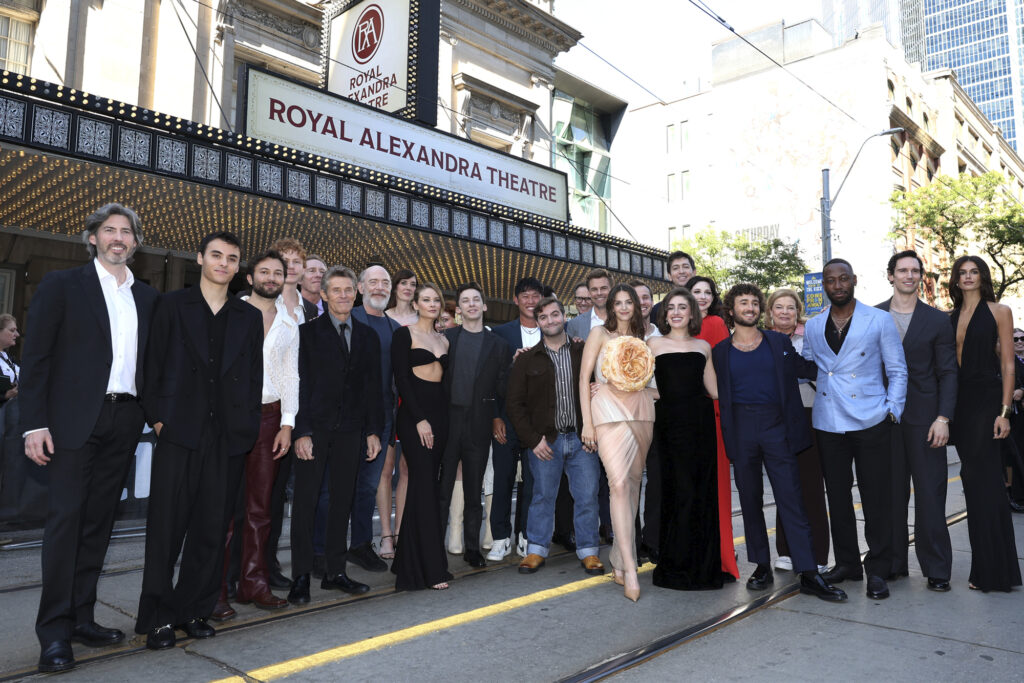
What did you accomplish on this, in terms of a filmmaker, that you are proud of and that you’d like to take with you for your next projects?
I feel like I’ve been chasing organized chaos for a long time now — I’ve tried in various movies and even in Juno — it’s just like, how do you get students milling around a high school to feel like a real high school, or people in an airport in Up in the Air? I’ve always been really interested in how you [could] replicate that kind of life that feels so hyper-real? This is the closest we’ve ever gotten to it. Shelley Ziegler, my first AD, the background cast and the willingness of our actors to let go. We had 80 speaking roles. There were days where our sound mixer put microphones on. He had 58 mics going, 58 faders going. It just shows the sheer amount of people simultaneously working. It requires a lot of trust, and I’m really appreciative of that trust to just jump in the ocean and see what happens.
Saturday Night is now playing in theatres across Canada.
